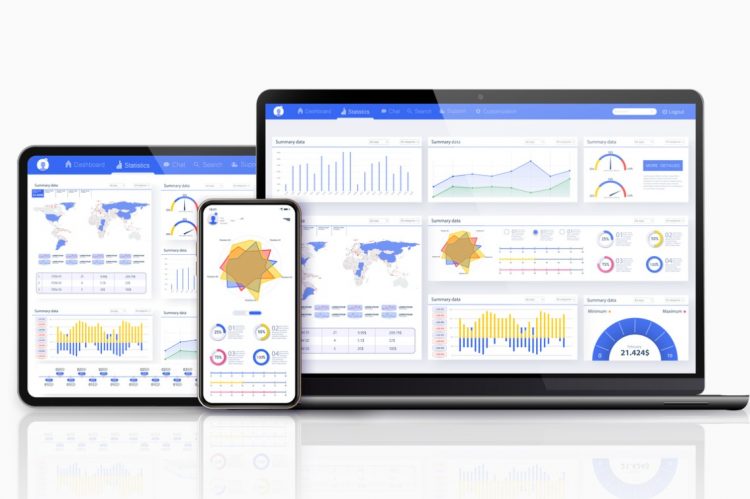With the media landscape evolving at a lightning-fast pace each day, brokers and agents have been scrambling to keep up with ways to capture the attention of potential buyers and sellers.
From GPS-enabled digital ads to interstate highway billboards, the noise of modern marketing is all around us, but as with everything else in real estate, the winners and losers tend to get sorted out based on the same three things: location, location and location. Where some neighborhoods might be clued into niche social media sites like NextDoor, others may be more traditional and rely on printed listing brochures, direct mail and cold calling.
The methods and collateral used to get an agent’s information in front of the right eyeballs can make or break a business model. In fact, the competition of marketing tools has gotten so intense that it’s now become one of the top selling points that agents look for when deciding which brokerage to hang their hat on. Particularly in big markets where the competition between brokers is fierce, the marketing stacks designed to lure top talent can range from hundreds of thousands of advertising dollars for luxury listings to exclusive access to international buyers that penetrate the infamous “Great Firewall of China.”
“Everyone has a different strategy to market their listings, so it’s important to offer a variety of support,” says Kevelyn Guzman, chief operating officer at Coldwell Banker Warburg in New York City. Her firm will pay for an array of marketing services from its agents’ drone videos to lavish broker open house parties.
Ben Willig, director of sales for Elegran | Forbes Global Properties in New York City maintains that video content needs to be a focal point in any modern marketing stack that brokers offer their agents.
“A robust marketing suite is essential,” Willig says. “Brokers should recognize the growing importance of video content in today’s digital landscape. By offering agents access to company-branded videos, brokers enable agents to enhance their marketing efforts significantly. Agents can integrate these videos into their own content or collaborate with the brokerage to produce high-quality, company-branded videos. The effectiveness of video content in capturing the attention of potential clients cannot be overstated, making it a valuable asset for brokers to provide their agents.”
Guzman added that there’s a valuable educational component to real estate marketing as well. While some listings might be better suited by an aggressive online strategy, others may benefit from a longer-lead print campaign.
These decisions are not always obvious, Guzman says, and the best strategies typically emerge when there is collaboration and guidance from mentorship.
“Every quarter, we have marketing meetings with the agents to determine their needs,” she said. “Many are unsure what tactics would work best for them, and when certain marketing strategies are identified, many often need help with the execution. That’s why it’s important to offer a white glove approach to marketing solutions for agents.”
Brokerage marketing resources often serve a twofold strategy: it helps the agent increase their visibility while also proliferating the brokerage’s corporate brand in the marketplace. The desired brand consistency can benefit both parties and foster a strong partnership—so much so that Matt Teifka, founder of Teifke Real Estate in Austin, Texas, says agents should expect access to all broker materials as a matter of standard policy.
“Real estate agents should expect their brokers to provide them with marketing materials that represent the broker’s brand. This could include listing flyers, business or contact cards and more,” Teifke says. “Agents should also be able to access any type of promotional collateral that the broker produces, like brochures or advertisements.”
Personal Branding
As much as brokers help agents stay relevant as a means to their own competitive end, there are some parts of the marketing picture that agents might be better off doing on their own. For instance, personal branding.
Coupled with the ability to find buyers and sellers is an inextricably linked half of the marketing equation based on the agent’s own authenticity. This is the personality and genuine wisdom of the agent, which needs to be expressed to the public in order to build trust and, ultimately, business. It’s a nuance that dances hand-in-hand with resources and education provided by brokers, but it’s hardly a white-glove service.
“Thought leadership” is a popular marketing buzzword that makes sense for real estate agents to demonstrate and utilize. It refers to an agent’s expertise as a real estate professional and, if executed properly and authentically, can reach a prospective client and make them think: I want to do business with that person!
Consider a weekly email newsletter. An agent can blast this to his or her (or their) network and, with a broker’s help, have it look sharp and feature high-level content, such as what the Fed is doing with interest rates or the key findings of the latest S&P/Case-Shiller report. While that’s an impressive email to receive and could give the reader a nice talking point or two at their next cocktail party, it’s generally not useful when it comes to the typical home-buying decision.
Buyers might be better served by learning about local school districts, commutes to work or walkability scores. More importantly, the reader would have to trust the source in order for the message to have credibility and lead to a meeting with the agent who sent it. This level of authenticity—useful day-to-day “low-level” information coupled with the trustworthy voice that’s delivering it—produces an effective personal brand for real estate agents, and it’s the half of the marketing pie that they’ll need to produce on their own.
Effective marketing not only highlights a property’s best features, but also showcases the expertise and professionalism of the real estate agent. To empower their agents to facilitate successful transactions and stay competitive in their own right, brokers must provide a comprehensive set of marketing materials. It’s an increasingly critical piece of any brokerage; however, it is also incumbent on agents to perform their share of the equation in order to make it a successful collaboration.











